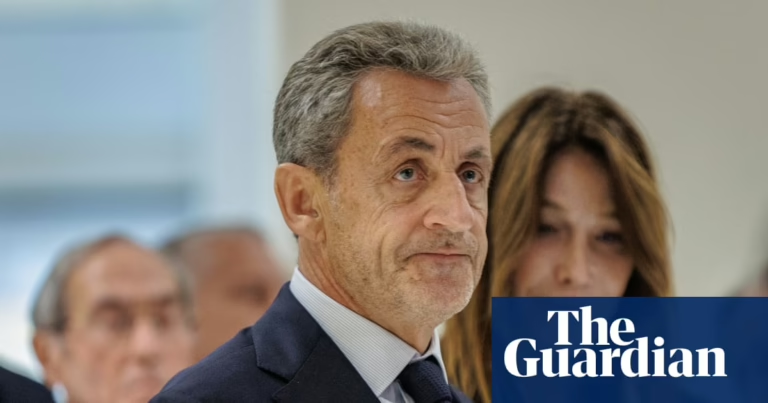The legal team representing former French president Nicolas Sarkozy has announced their intention to minimize his time behind bars following his sentencing to five years in prison for criminal conspiracy. The conviction stems from allegations that Sarkozy orchestrated a scheme to secure campaign financing from the late Libyan leader Muammar Gaddafi’s regime.
“Our priority is to ensure that his imprisonment is as brief as possible,” stated Jean-Michel Darrois, Sarkozy’s attorney, during an interview with BFMTV on Friday. This development marks Sarkozy as the first former French president to face incarceration.
Sarkozy, who led France as a Republican president from 2007 until 2012, has filed an appeal against the verdict. However, due to a judicial stipulation, he is required to commence his prison sentence within the next few weeks, even as the appeals process unfolds.
Henri Guaino, a close confidant and former special adviser to Sarkozy, described the conviction as “a disgrace to the nation and its institutions” during a broadcast on RTL radio. He called on President Emmanuel Macron to grant a pardon, allowing Sarkozy to avoid imprisonment.
President Macron has yet to issue any public remarks regarding the sentencing.
Prominent members of Sarkozy’s right-wing party, Les Républicains, have voiced their support, though they have refrained from demanding a pardon amid growing public skepticism toward politicians. Bruno Retailleau, the party’s leader and interior minister, expressed his “complete solidarity and friendship” with Sarkozy, affirming confidence in his commitment to contest the conviction through legal channels.
‘I am innocent’: Nicolas Sarkozy given five-year prison sentence after Libya trial – video
At 70 years old, Sarkozy is scheduled to meet with the state prosecutor on October 13, where he will be informed of the exact date he must begin serving his sentence, potentially as soon as October or November. French news outlets have speculated that he will likely be held at La Santé prison, located in southern Paris, where he would occupy a solitary cell but interact with other inmates during yard time and communal activities. A prison official noted that inmates at this facility typically spend 23 hours daily confined to their cells.
Once incarcerated, Sarkozy’s defense team can petition for alternatives to imprisonment, such as house arrest with an electronic monitoring device. Such requests would require judicial approval.
In a recent editorial, the conservative newspaper Le Figaro criticized the court’s decision as “illogical and baffling.”
Conversely, some analysts pointed out that French politicians across the spectrum have faced legal consequences, citing the example of former Socialist minister Jérôme Cahuzac. Cahuzac, who had championed tax transparency under François Hollande’s administration, was convicted for tax evasion and hiding assets in offshore accounts.
The publication Le Monde emphasized that Sarkozy’s sentencing reinforces the principle that “no individual is exempt from the law.”
According to France’s largest magistrates’ union, over 80% of individuals sentenced to five years or more are required to serve time immediately, indicating that Sarkozy is receiving standard treatment under the law.
During the trial, the public prosecutor accused Sarkozy of forging a “Faustian bargain of corruption with one of the most notorious dictators of the past three decades” to secure illicit campaign funds from Gaddafi. The prosecution had sought a seven-year prison term, but the judges ultimately imposed a five-year sentence, with the condition that incarceration begin promptly despite ongoing appeals.
From the political left, Eva Joly, a former magistrate and 2012 Green Party presidential candidate, condemned Sarkozy’s public denunciations of the judiciary as “an assault on democratic values,” likening his rhetoric to that of former U.S. President Donald Trump.

















